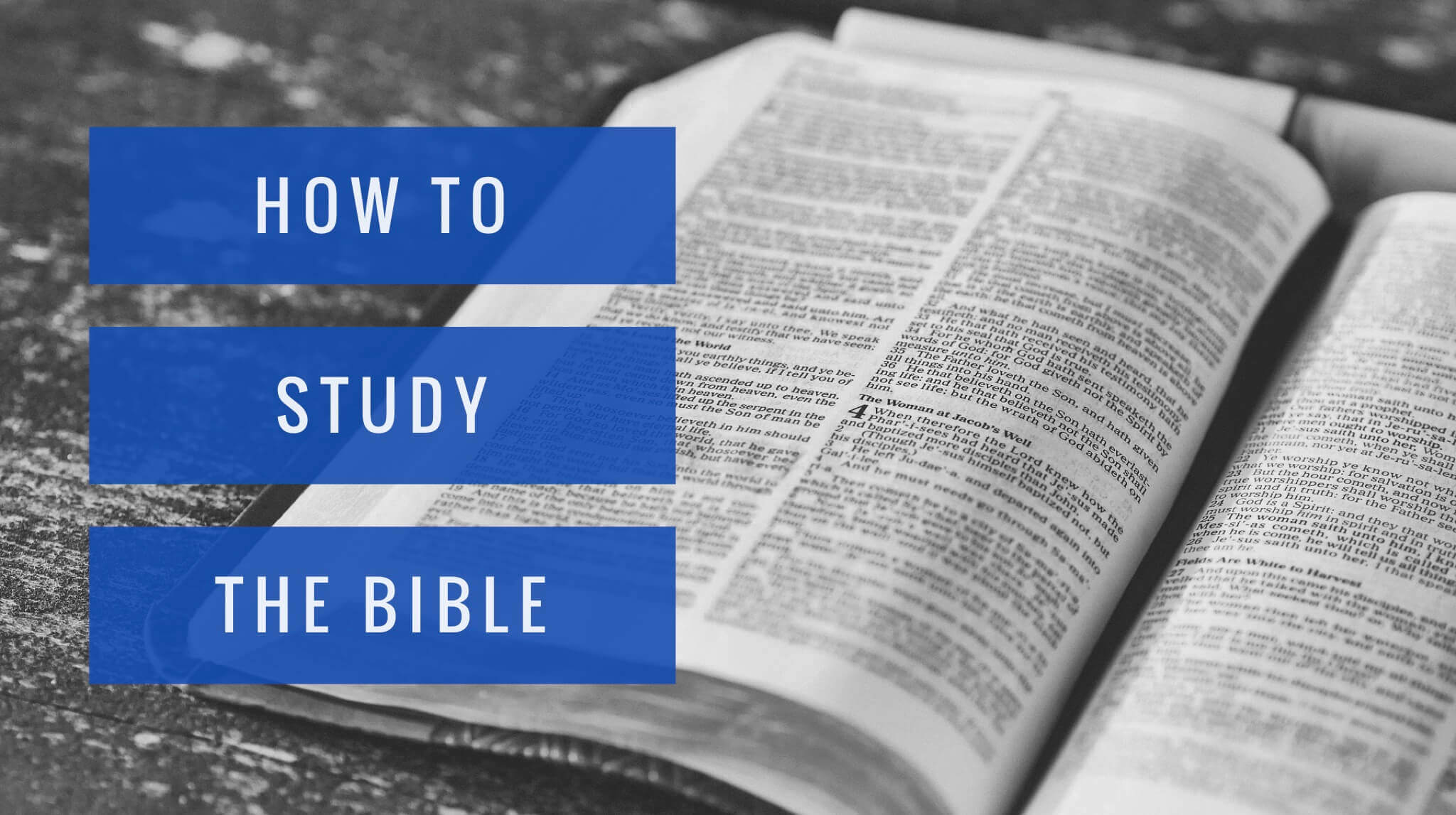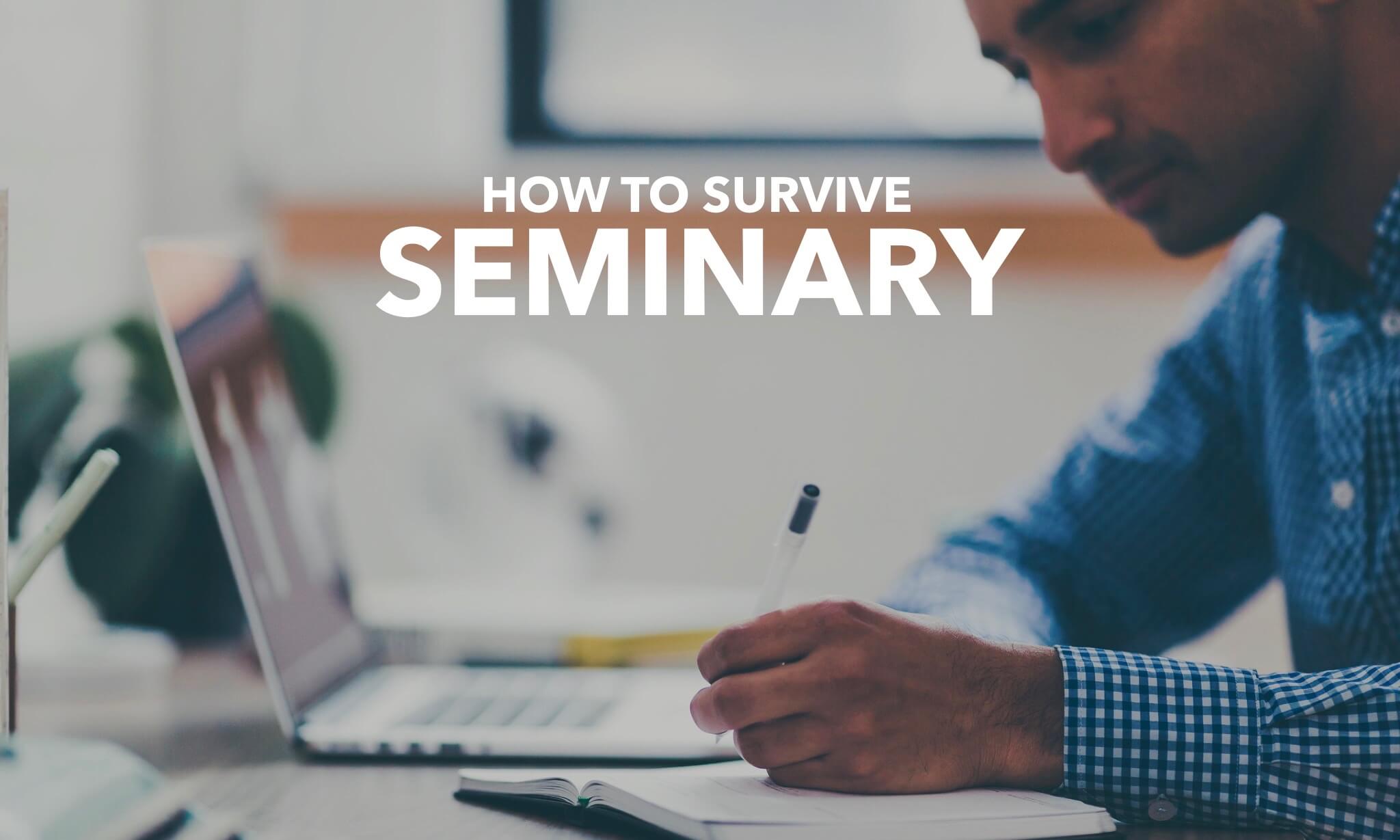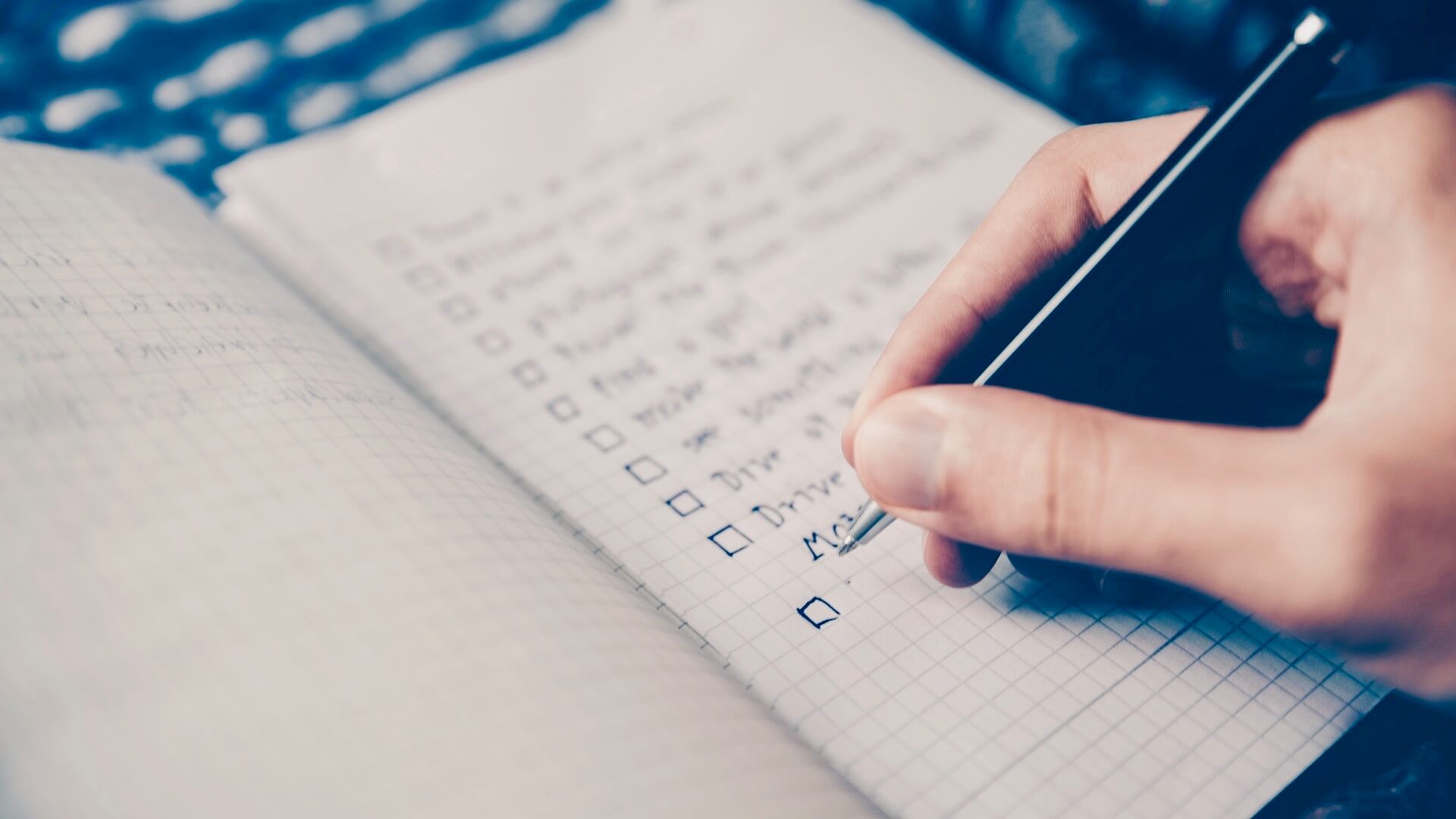How to Study the Bible: 5 Tips For Better Bible Reading
Of all the spiritual habits that Christians have practiced for thousands of years, none may be more important than Bible reading.
Only through the instruction of the Bible can we understand the ways and the will of God.
While the Bible is the foundation of our faith, the sad reality is that most Christians barely read it.
In fact, in 2014 a study by LifeWay found that 18% of Christians rarely or never read the Bible, 22% read it just once a month or a few times a month, and 14% say they read it once a week (but that’s probably just because they attend church).
So more than half of Christian barely read the Bible. Based on my decade of experience as a pastor, I’d guess that these numbers are probably worse today.
Too many Christians stay stuck as spiritual babies, missing out on the riches of knowing God’s will and his word, because they neglect reading the book that they claim to love.
We cannot be content being spoon-fed by a pastor on Sunday. We need to grow up and feed ourselves.
If we love the Bible so much, why don’t we read it?
I think part of the problem is that we don’t know how.
So here are five tips on how to study the Bible.
1. Read Wide, Then Deep
Before you go deep, you need to go wide.
You might be surprised to learn that each book of the Bible was meant to be read from beginning to end. But for some reason, we take it one random sentence here, jump to another paragraph there, and are surprised when we interpret it wrong.
You won’t understand a verse if you don’t know the context of the verse.
As a pastor I know says, if you take the text out of context, it’s just a con. It’s a lie.
You’ll never understand the Bible if you don’t understand the big picture—how it all fits into God’s redemptive plan of salvation.
The Bible is the best interpreter of the Bible. You may not understand it all at first, and that’s OK. Keep reading. Over time, you’ll read something in one part of the Bible that helps explain another part.
You’ll understand the Bible more by simply reading it more.
Don’t just study a verse if you’ve never read the book. When you understand the book, you’ll see the verse more clearly.
2. Pace Yourself
Bible study is a lifelong journey, not a one day hike.
You won’t learn everything in the first reading. So pace yourself.
As Isaiah indicates, we learn “precept upon precept, precept upon precept, line upon line, line upon line, here a little, there a little” (Isaiah 28:10).
We learn by repetition. Few people master something by speeding through it.
You can spend a lifetime studying the Bible and still not reach the end of its riches. Take it one step at a time. Book by book, line by line, again and again.
Don’t study the Bible just to check the box and get through it. Study the Bible so that God can transform your life by renewing your mind (Romans 12:2).
3. Set a Regular Time and Place
You likely brush your teeth in your bathroom in front of the mirror every night before getting in bed. It’s a habit most of us have ingrained in us from a young age.
Just like brushing your teeth before bed, you need a routine that cues you to read your Bible.
If you don’t schedule Bible study, you won’t study the Bible.
Face it; there are a thousand other shinier, easier, more entertaining things you could be doing in your free time. Bible study requires discipline.
You have to fight for time with God and his Word because the enemy will do anything to stop you. The distractions of life will kill your Bible reading before it begins if you allow it.
To make study a habit, you’ve got to make it a routine.
For me at this stage in my life, it’s every morning at 5:30 AM in my home office at my desk. I get up early before my kids do so I can have time alone with God.
But when I was in college, when pastors told me I should wake up at 5:30 AM to read my Bible, they might as well have told me to read the Bible on the moon. It seemed impossible because I was always up until 2 AM writing a paper or hanging out with friends.
So I felt unnecessary guilt for reading my Bible more sporadically throughout the day (usually in between classes) and not in a “morning quiet time.”
Here’s the point: Find the right time and place for you. But if you don’t make it a habit, a daily routine in your life as normal as brushing your teeth, you’ll only have good intentions with nothing to show for it.
4. Focus
Eliminate distractions and calm your mind. Make sure you are ready to focus. Silence your phone if you have to. Don’t even have your phone with you if it’s too much of a distraction. Often a Bible and maybe a pen and a notebook are all you need.
I read on my phone using the Logos Bible App, but it has occasionally been a distraction for me when I hear that ding of a new email or a notification pops up.
It’s so easy to read the Bible while also thinking about something else in the back of your mind. When I do this, I don’t retain what I read, and I’m giving God my best. It’s like trying to talk to my wife talk while watching a cat video on my phone; I miss half the conversation and disrespect her.
So I find it helpful before I begin to close my eyes, focus on being present in the moment, and say a quick prayer like David in Psalm 119:18, “Open my eyes that I may see wonderful things in your law” (NIV).
This helps me focus on the goal of studying the Bible, opening my eyes to see the life-changing word that God has for me.
5. Follow a plan
Don’t just show up, randomly open the Bible, drop your finger somewhere and start reading. You need a plan.
Maybe it’s a simple Bible reading plan. There are a ton of them out there on most Bible apps.
If you don’t know where to start, if you’ve never read the Bible before, start in Luke. It’s the story of Jesus. The overarching story of the Bible is about Jesus.
The Old Testament points towards the need for a savior and the coming of Jesus. The New Testament tells us about Jesus’ life, death, and resurrection, how the early church applied his teaching, and how he will come again.
I followed a daily reading plan to read through the entire Bible in a year for many years. So over the years with a habit of reading 10-20 minutes a day, I’ve read through the entire Bible something like eight times this way (I’ve stopped counting). In the last few years, I’ve slowed down and am focusing more on depth than breadth.
The REAP Bible Study Method
One way of studying I’ve used and loved is what I call a Reap Journal. I love it because it’s powerful, but also simple.
It’s also a reminder of why we study the Bible: We want to reap the fruit of planting God’s word in our hearts (Psalm 1).
R.E.A.P. is a simple acrostic that stands for Read, Explain, Apply, Pray.
I thought I made this up until I Googled it. That humbled my pride a little. But my take is slightly different.
I study the Bible with an open notebook and work through these four steps.
Read – What does it say?
Read a passage of the Bible.
Currently, I’m doing one chapter a day through the book of Romans. So I read Romans 16 today.
Explain – What does it mean?
Explain what you just read.
Write a summary of what it means.
This is where my acrostic differs from others. They tell you to examine the verse, but I think explaining it is better because:
- It’s not enough to study the Bible, you also have to interpret what it says.
- The best way to learn something is to explain it to someone else.
- Nothing drives you to study the Bible deeper than trying to explain it and facing the humbling reality that you can’t.
If you really want to learn the Bible, teach it to someone else. You get the most out of what you give away.
You don’t know what something means until you can explain it in a simple and clear way to someone else.
So I like to imagine I’m explaining what I just read to my kids and write that down.
Much of the Bible is understandable on its own. You simply have to read it and do a little thinking. But sometimes I find that I can’t explain it. So I get help.
I pick up a good study Bible or commentary and get clarity where I’m fuzzy.
In order to properly interpret the Bible, you’ll need to know where the book fits in the bigger picture of God’s redemptive story, who wrote it, the genre, the historical background, the intended audience, and more. If you are overwhelmed by all this, that’s where you need to consult the experts.
If you are new to Bible study, start with something like the ESV Study Bible, Life Application Study Bible, or perhaps a book in the Tyndale New Testament and Old Testament commentary series.
Apply – What does it mean for me?
Apply it to your life.
I write one specific way that I will apply what God says to my life. I try to make it as concrete and action-oriented as possible.
For example, today I read Romans 16 and saw the long list of Paul’s friends and fellow believers he sends his greetings to. I was convicted that I haven’t reached out to some people in a while. I enjoy being a bit of a hermit during the week, but I need community in my life.
So I applied the verse by getting out my phone and texting a few people I haven’t talked to in a long time.
This was better than how I was tempted at first just to write, “I need to foster more relationships.”
That’s a nice thought, but what am I going to actually do about it?
If at all possible, add some action to your application (James 1:22).
Pray – What do I need from God?
Pray about it.
Prayer is simply talking to God. So I’ll jot a few bullet points in this section about things I need to talk to God about—prayers for my wife, my kids, my ministry, and so on.
Then, I’ll talk about what I learned with God.
I often begin by praising God for how great he is, confessing my shortcomings in the area of my application (and/or other areas I’ve fallen short), and then pray for God to give me eyes to see opportunities to apply what I read about and the courage to do it.
How Will You Study the Bible?
If you fail to plan, you plan to fail.
You can use my method or try one of a number of different helpful plans. But whatever you do, make a plan or you’ll just be stumbling in the dark.
So, how will you study the Bible?






